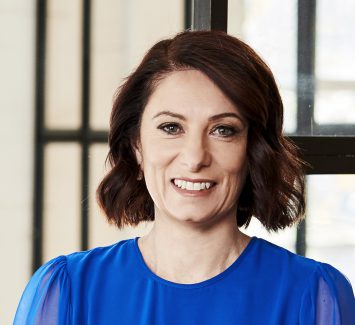Business leaders today need a ‘wartime’ mindset
By Leon Gettler >>
WITH THE COVID-19 recession in full swing, Lyndall Spooner, the founder and director of consultancy and advisory firm Fifth Dimension, said business leaders need to adopt a wartime mindset.
She said whenever there is a downturn, businesses have traditionally been protective, whereas they need to become more innovative and push their businesses forward more than ever.
“To me, the wartime mindset is you need to be basically relentless when things get tough and you need to rethink your business, where you are headed and what you’re going to do to make sure your business survives – and to be ruthless in that vision,” Ms Spooner told Talking Business. 
She said many businesses were not prepared for this as they had experienced nearly 30 years of growth since the last recession.
“I think a lot of businesses have looked at their success and probably over-inflated the success of things they’ve done in their business and not taking into account a lot of their growth would have come regardless of what they did or didn’t do, because we’ve been living in a growing economy for several decades now,” Ms Spooner said.
“So what happens when that economy changes and you are now in a downturn?
“You now have to fight to survive as a business. You have to make sure that every dollar you invest in the business is actually going to give you a very good return.
“And you shouldn’t rely on what you’ve done in the past because, I would say, where you did invest, you don’t know to what extent it was successful because there was this natural momentum in the economy anyway that was driving everyone forward,” Ms Spooner said.
DATA MAKES THE DIFFERENCE
Lyndall Spooner said Fifth Dimension urges its clients to use the right data to make the best decisions that they can. She said many companies had been basing decisions on data in an economy that was growing – and only discovered they needed new data when there was a downturn.
Ms Spooner said data came in two forms. The first was operational data setting out sales and revenue and profitability. The second came from the customer base and the market indicating what consumers needed and were buying, and how that might be changing.
She said this second area of data was what companies often got wrong. They often did not see they were looking at the wrong metric until they saw a decline.
“We are in an environment where consumer spending is declining and consumers are becoming far more discerning about the companies they want to buy from and the products they want to buy,” Ms Spooner said.
“So you need very good data to tell you how consumer sentiment is changing. What is it that they’re looking for? What should you be focusing on to invest in your business to have the right products and services to meet their needs?”
CONSUMER BEHAVIOUR METRICS
Ms Spooner said there was “no single metric out there” to explain consumer behaviours and businesses needed to look at what the right metric might be for the industry they are in – and what kind of metric suited the company, to help its brand grow
“Be a war time CEO, be prepared to let go what you’ve done in the past, find the metric that will help you grow in a very tough economy by better understanding your consumers and their needs than your competitors and ensure your business is investing in the right things,” she said.
Ms Spooner said a lot of marketing models currently used by companies were developed in the 1800s and the world was now a different place, in terms of how consumers get introduced to brands and select them, particularly with Google.
She said all this needed to be taken into account when selecting a metric. And also, companies should not rely on a single metric.
“You need an ecosystem of metrics to understand all these different areas and considerations,” Ms Spooner said.
Hear the complete interview and catch up with other topical business news on Leon Gettler’s Talking Business podcast, released every Friday at www.acast.com/talkingbusiness. 
ends

 How to resolve AdBlock issue?
How to resolve AdBlock issue?